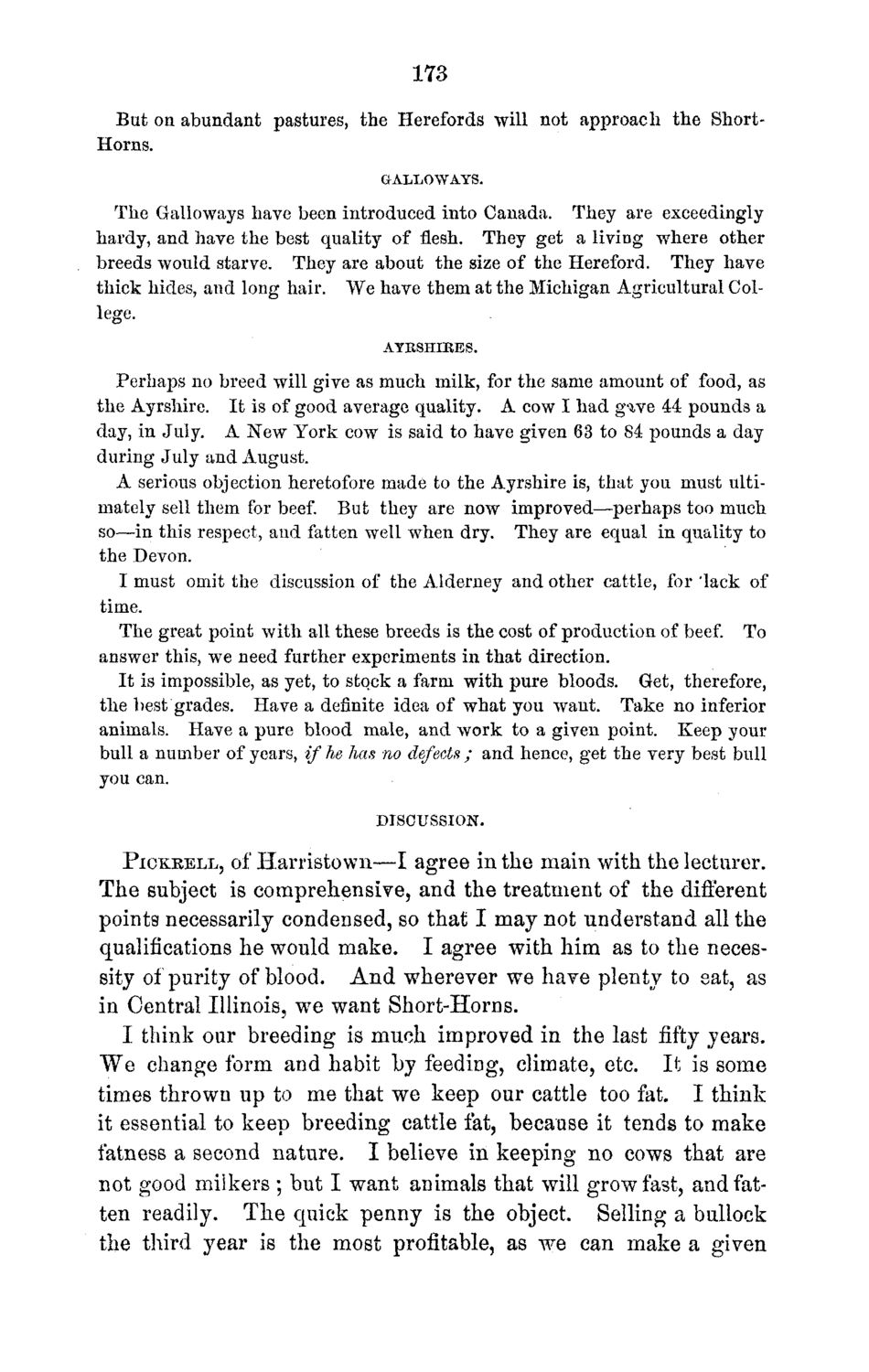| |
| |
Caption: Board of Trustees Minutes - 1870
This is a reduced-resolution page image for fast online browsing.

EXTRACTED TEXT FROM PAGE:
173 But on abundant pastures, the Herefords will not approach the ShortHorns. GALLOWAYS. The Galloways have been introduced into Canada. They are exceedingly hardy, and have the best quality of flesh. They get a living where other breeds would starve. They are about the size of the Hereford. They have thick hides, and long hair. We have them at the Michigan Agricultural College. AYRSHIKES. Perhaps no breed will give as much milk, for the same amount of food, as the Ayrshire. It is of good average quality. A cow I had g*we 44 pounds a day, in July. A New York cow is said to have given 63 to 84 pounds a day during July and August. A serious objection heretofore made to the Ayrshire is, that you must ultimately sell them for beef. But they are now improved—perhaps too much so—in this respect, and fatten well when dry. They are equal in quality to the Devon. I must omit the discussion of the Alderney and other cattle, for 'lack of time. The great point with all these breeds is the cost of production of beef. To answer this, we need further experiments in that direction. It is impossible, as yet, to stock a farm with pure bloods. Get, therefore, the best grades. Have a definite idea of what you want. Take no inferior animals. Have a pure blood male, and work to a given point. Keep your bull a number of years, if he has no defects ; and hence, get the very best bull you can, DISCUSSION. PICKKELL, of Harristown—I agree in the main with the lecturer. The subject is comprehensive, and the treatment of the different points necessarily condensed, so that I may not understand all the qualifications he would make. I agree with him as to the necessity of purity of blood. And wherever we have plenty to eat, as in Central Illinois, we want Short-Horns. I think our breeding is much improved in the last fifty years. We change form and habit by feeding, climate, etc. It is some times thrown up to me that we keep our cattle too fat. I think it essential to keep breeding cattle fat, because it tends to make fatness a second nature. I believe in keeping no cows that are not good milkers ; but I want animals that will grow fast, and fatten readily. The quick penny is the object. Selling a bullock the third year is the most profitable, as we can make a given
| |